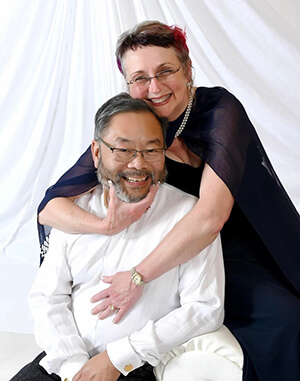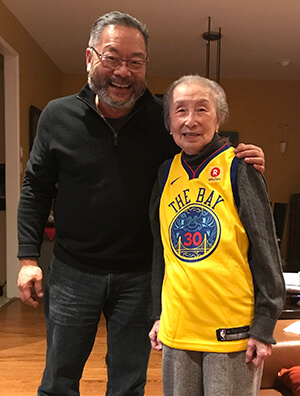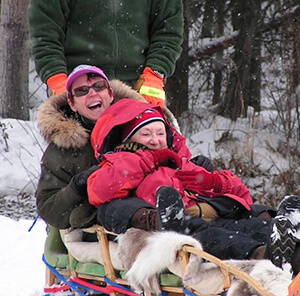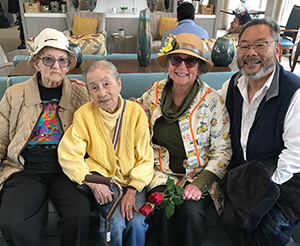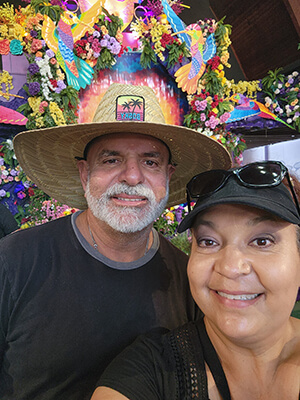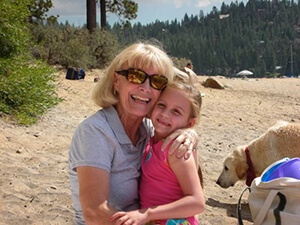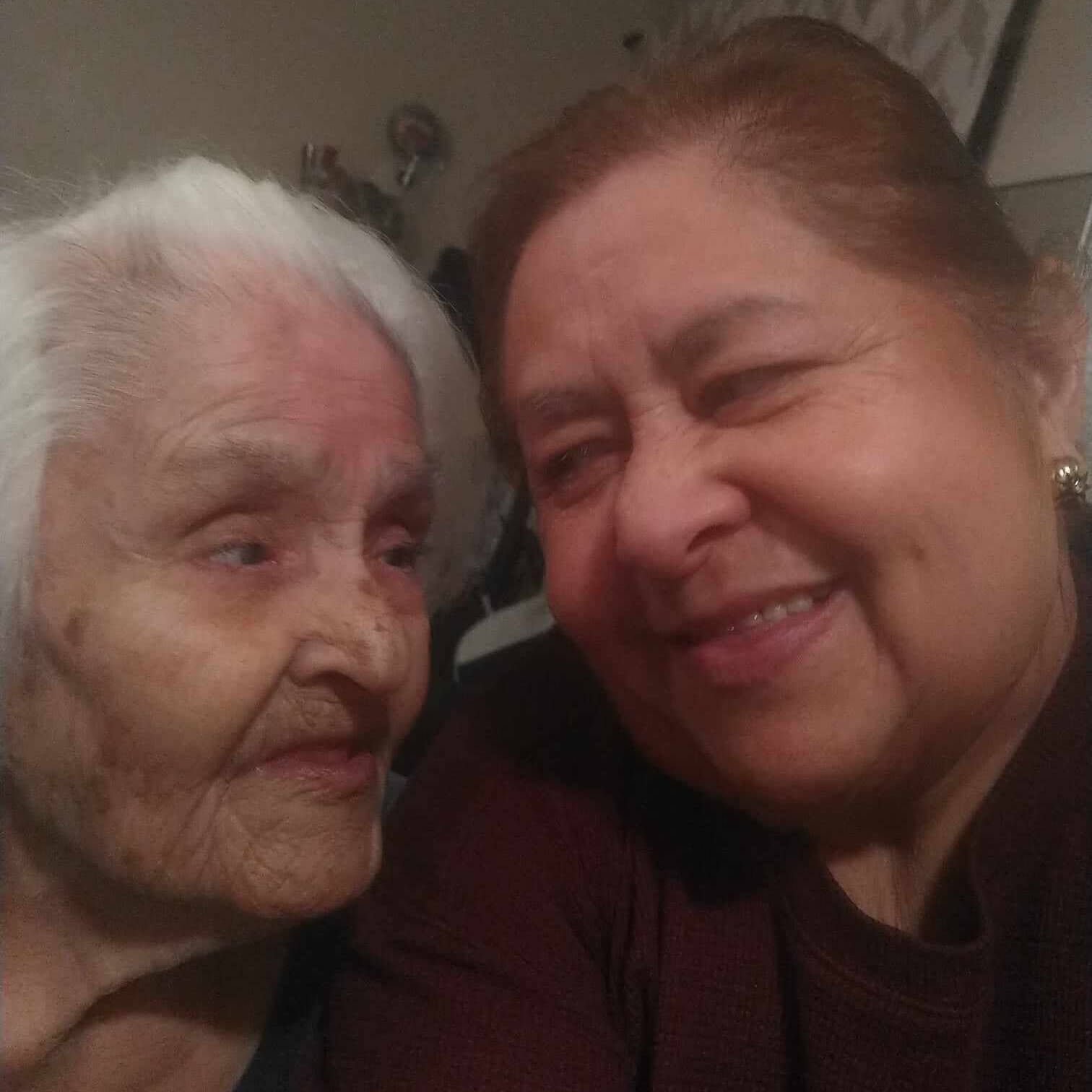By Kerry Larkey, MSN, RN In celebration of Family Caregivers Month, the Alzheimer’s Association® recognizes and honors the essential contributions of caregivers across the nation, including Wendie and Hank Wu. After caring for not... The post Caring for three...
By Kerry Larkey, MSN, RN
In celebration of Family Caregivers Month, the Alzheimer’s Association® recognizes and honors the essential contributions of caregivers across the nation, including Wendie and Hank Wu. After caring for not one but three family members with dementia, Wendie and Hank are well-acquainted with the many rewards—and challenges—that come with caregiving. Along the way, they’ve learned important lessons about the benefits of joining a support group. Now, they’d like to share what they’ve learned with their community and spread the word about the value of connecting with other caregivers sooner rather than later.
Hank’s father’s Alzheimer’s journey
Wendie and Hank’s introduction to Alzheimer’s disease came when Hank’s father, Thomas, started showing signs of cognitive impairment in 2008. A year later, he received an official diagnosis from his primary care physician of Alzheimer’s and was in the early-stage of the disease. Although his father didn’t require intensive care initially, Hank immediately stepped up to support his parents. “I lived nearby and I would check on them regularly, at least three times per week,” Hank says.
The disease progressed slowly, but after several years, it became difficult for Hank’s mother, Teresa, to care for Thomas on her own. As a result, Hank took on a more hands-on role in caregiving. Thomas’s short-term memory suffered the most and he required regular help with toileting.
A support group offers encouragement
It didn’t take long for the emotional burden of caregiving to begin taking a toll and to cope with these pressures, Hank joined an Alzheimer’s Association support group. He regularly attended meetings while Wendie provided support at home by maintaining the family and taking care of their needs. “I was supporting him to stay sane,” Wendie explains. “He was spending every day with his parents the last couple of years.”
After Thomas had a stroke at age 91, the MRI revealed that he had had ischemic vascular dementia rather than Alzheimer’s, as initially suspected. It appeared that Thomas had experienced a series of mini-strokes over the years. Although his condition continued to deteriorate, Thomas remained pleasant throughout and stayed himself. Just before his 96th birthday, Thomas passed away.
Hank’s mother begins her own Alzheimer’s journey
After his father’s death, Hank assumed his experience with dementia caregiving was over and said goodbye to the support group that had been such a source of strength over the years. “I thought okay, I’m done,” Hank says. “I made a big donation, said thank you very much, and figured I wouldn’t be back.”
However, towards the end of Thomas’s life, Teresa, 11 years his junior, began deteriorating physically and showed several of the 10 early signs and symptoms of dementia. Six months after leaving the support group, Hank returned when he started caring for his mother. “I think Dad helped her keep it together [while he was alive],” Hank says of her rapid decline.
Wendie becomes a caregiver for her mother
Coincidentally, at about the same time Teresa began needing help, Wendie’s mother, LaVina, also started showing signs of dementia. Her cognitive decline became evident in 2019 when LaVina underwent surgery, and Wendie checked in on her apartment. After opening the door, she immediately realized something wasn’t right with her mother’s cognition.
“There were things that were just wrong,” Wendie describes. “Completely wrong.” Seeing the chaotic state of the apartment was like having a window into her mother’s mind. She knew her mother needed help.
Wendie’s mother before dementia
LaVina had always been a bold and fearless person. Throughout her life, she’d been an avid solo traveler and someone who never liked following other people’s rules. “She was a Marine before I was born,” Wendie says. “She felt like she could just argue or push her way through things with willpower and bombastity.”
Early signs and symptoms
While on a celebratory 60th birthday cruise with the family, Wendie noticed her mother was uncharacteristically anxious, constantly worrying that she wouldn’t be able to find her room. “I just thought it was travel anxiety,” she says, “But later I realized what was going on.” LaVina went from a bold world traveler to suddenly saying she couldn’t go places or do things alone.
Looking back, Wendie realizes that her mother’s spirited personality became increasingly angry, argumentative, and combative as the dementia took hold. For example, LaVina became worried about things she thought she might get in trouble for, like making minor changes to the apartment. A lifelong skeptic of scams, LaVina suddenly went on an impulsive mail order catalog contest spending spree, spending $2,000 on cheap items.
Her mother’s personality changed significantly, making Wendie’s caregiving experience very different from Hank’s. “His dad and mom’s dementias were different from my mom’s,” Wendie explains. “She was combative.” Hank adds, “What we were seeing was extraordinary anxiety, frustration, and anger. She could feel she was losing control and had no way of preventing it, and it was very overwhelming.”
Wendie joins the support group and finds community and understanding
Seeing how caregiving impacted Wendie, Hank encouraged her to join his support group to relieve her stress. “I had such a good support group,” Hank says, “I told her, ‘Why don’t you come along?’” Joining the group provided immediate relief and helped fight the loneliness of caregiving. “It’s group therapy with information on resources—and sanity,” Wendie says.
They continue going to the support group together to this day. Even though Teresa passed away in 2020, Hank continued attending as a resource to Wendie, who still cares for her mother, and other attendees. As a long-time member, Hank has seen and heard it all and offers a unique perspective to others.
“New people always talk about how lonely and stressful it is dealing with caregiving all on their own,” Hank explains. “Even when they’re part of a family, people still feel alone. Even though I had Wendie, I irrationally still felt alone.” Wendie and Hank agree that the support group worked for them mainly because it emphasized that no one has to suffer alone or live in isolation.
Support groups bring people together and combat isolation
“There’s a huge spectrum of demands [on caregivers],” Hank says. “From horrible cases to easy ones—like my father. No matter what, it feels like it’s very difficult to communicate with others [outside of the support group] and feels like it reinforces that isolation.” Sharing your story also helps other people in the group to feel understood. “Everybody relates,” Wendie adds.
Wendie hopes more family members and loved ones will join support groups early rather than waiting until a crisis point. “I wish more people had other people with them at the group,” she says. “I don’t know how Hank would have felt to have me there when he was going to the group for his dad, but it helped me to have him in the same group.” Hank adds, “Having a non-judgemental group of people where one can be honest is a bit of sanity in an insane situation. It truly is.”
Unfortunately, Hank thinks many caregivers would like to join a group but are unable to do so. “The tragedy of all of these support groups is that a tremendous number of people need them,” he says. “And it’s not that they don’t seek them out, it’s that they can’t get people to cover them so they can take a break [from caregiving].”
Facing stigma and social challenges
Looking back on the care their parents received from medical professionals, Wendie and Hank feel very fortunate to be located in the Bay Area. Hank’s parents were of Chinese descent, and their physicians were often fluent in their primary language and had plenty of written resources available to take home.
But when his disease progressed and Thomas lost Cantonese, they experienced some challenges finding resources. “He [eventually] only spoke Shanghainese,” Wendie says. “There aren’t many Shanghainese caregivers. So when your family member is losing their English and reverting to their native language, trying to find care can be a challenge.”
In fact, according to the Alzheimer’s Association 2023 Alzheimer’s Disease Facts and Figures report, only 12% of Asian Americans say they have no barriers to excellent Alzheimer’s and dementia care. Members of the Asian American and Pacific Islander community living with Alzheimer’s often face unique challenges related to stigma, family support, and lack of unbiased medical research.
LaVina, on the other hand, faces unique challenges because she’s a female veteran. “Mom is Tier One and there’s hiccups because she’s a woman,” Wendie says. For example, housing became an issue within the Veterans Affairs system because they have shared rooms with one bathroom and there often isn’t another woman on the unit to pair her with. “It’s not always on the front of staff’s mind that she’s a woman,” Wendie explains.
Advice for others
What is Wendie and Hank’s biggest piece of advice to other caregivers? “Get to the support group,” Wendie says. “If ours doesn’t work, find another group. And you have to laugh at some things.” Hank weighs in, saying, “The moment you smarten up and show up to the support group, you need to to get a Power of Attorney (POA) in place. You’ve got to get the POA in place before things deteriorate to the point that [your loved one] can’t consent rationally.”
“Find a way to get people to hear that they need to be [in a support group],” Hank says in closing. “They shouldn’t hesitate. I can see, particularly with Asians, thinking they can’t do that because it’s too embarrassing, but you gotta get over it. Don’t do it alone. It’s a good thing and you need to give it a shot. The sooner, the better.”
For more information on resources, support groups, and caregiving tips visit alz.org.
The Community Resource Finder (alz.org/crf) can help connect caregivers with additional resources like legal services, housing options, medical services, and transportation assistance. Additionally, you can call the 24/7 Helpline 800.272.3900 and speak with staff who speak English, Spanish, Chinese, Hindi, and many other languages.
The post Caring for three family members with dementia: Couple finds strength from support group first appeared on Alzheimers and Dementia Blog - Alzheimers Association of Northern California and Northern Nevada.



